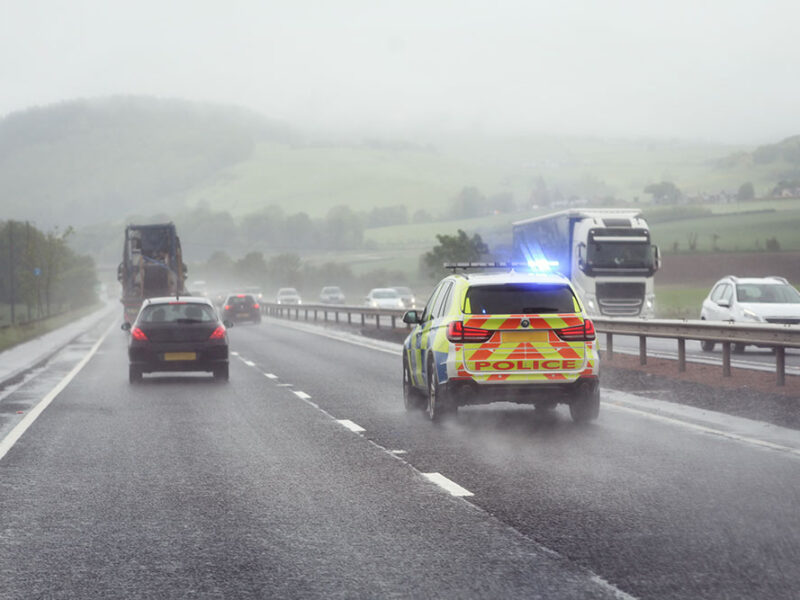Tyres that are 10 or more years old are to be banned from use on roads by buses, coaches and lorries.
The announcement of these new measures was made by Roads Minister Baroness Vere on 15th July 2020, and follows many years of work by road safety campaigners and lengthy government consultation which included a detailed investigation commissioned by the Department for Transport. The research found that old tyres suffer dangerous corrosion which drastically increases the risk of them failing, thus increasing the risk of accidents.
A statutory instrument giving effect to the new regulations is expected to be laid before parliament in Autumn 2020. The new legislation is expected not only to include an outright ban on fitting tyres aged 10 or more years old to the front wheels of lorries, buses and coaches and to all wheels of minibuses, but additional measures requiring that the date of manufacture of every tyre should be stamped and clearly visible on the tyre itself. Similarly, where tyres are re-treaded, the date of re-treading will need to be clearly marked so that the age of any tyre is clear to see.
The responsibility for ensuring that tyres are road-legal will remain with owners, operators and drivers, and the DVSA will be asked to continue checking tyre age as part of routine roadside inspections. Tyre age will also be added as specific check to be carried out as part of annual testing.
Operators and drivers will need to keep in mind that when the new law comes into force, it will be a criminal office to use a tyre which does not comply with the age and marking requirements - irrespective of whether the tyre appears to be defective.
If you would like any clarification on this matter or any other advice on your transport business, then please call 01279 818280 or click here to send an email. We are here to help.
July 2020

More News and Insight

DVLA Confirms New Rules for Professional Drivers Living with Diabetes
From Friday 7th November 2025 the rules were changed to allow diabetic drivers of PSV’s and HGV’s to monitor their glucose levels using Continuous Glucose Monitoring Systems….

Carrying Your Own: Horses to Widgets? Do you Need an O Licence?
The DVSA recently released a press release about the rules for transporting horses in horse boxes and trailers following an update on the guidance about using a tachograph in the vehicle being used to transport the animals…

The Senior Traffic Commissioner’s Statutory Guidance
The value of The Statutory Guidance Documents and the importance to operators, nominated transport managers and other professionals involved in the operation and driving of large commercial vehicles cannot be overstated…

Walkaround Checks – Where Road Safety Starts
Every day, often before the sun is above the horizon, hundreds of thousands of commercial vehicles are started up by their drivers and then they head out on to the UK’s road network to transport goods or passengers from one point to another, often with demanding time constraints thrown into the mix…

Traffic Commissioner’s Annual Report 2024/25: “Don’t Look Back in Anger”
Time has flown by and once again we find that the schools are back after the long summer break and the Office of the Traffic Commissioner has issued its annual report to the Secretary of State, providing a review of the year…

An Apple a Day to Keep the DVLA Away – A review of the DVLA’s Rules on Health Checks for Professional Drivers
There has been some discussion in the industry trade press recently that has highlighted proposed changes to how the disease of diabetes is monitored in professional drivers by the DVLA. One article in RouteOne Magazine stated that…

Light Goods – Heavyweight Industry: The DVSA’s New LGV Strategy
While relatively small in overall physical size light goods vehicles (LGVs) are now a large part of the UK road transport industry. There are currently estimated to be over 5.1 million light goods vehicles on UK roads today…

Employment Law Update – A tale like Scylla & Charybdis
Operators currently face their own real time nightmare in the form of a modern day version of the Greek mythological tale of Scylla and Charybdis (where sailors faced a narrow strait through which they had to pass which had a monster on one side and a whirlpool on the other!)…

Labour Government – Employment Rights Bill – What Will It Mean for Transport Businesses?
In October 2024 the Deputy Prime Minister, Angela Rayner set out her intention to reform the employment rights held by employees in the UK. In a press release issued at the time she is quoted a saying…

Revisiting the DVSA’s Guide to Maintaining Roadworthiness
In April 2025 the Driver & Vehicle Standards Agency (DVSA) issued the latest edition of its Guide to Maintaining Roadworthiness.

The Wheels on the Bus go Round & Round….but how do they Stop?
At the tail end of 2024 a Public Inquiry was held in front of Traffic Commissioner Kevin Rooney where the subject of brake maintenance practices was called into question…

Maintenance Provision Rating Scheme for Commercial Vehicle Workshops is Launched
One of the key tenants of running a commercial vehicle operation, whether ‘HGV’ or ‘PSV’ is that the maintenance of the vehicles is paramount. For some operators this will mean having their own maintenance facilities and teams to look after their fleet of vehicles in house, but the majority of operators in the UK are reliant on 3rd Party maintenance providers…
